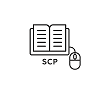
North Carolina, renowned for its robust academic institutions and thriving business environment, is at the forefront of this educational evolution. Here, your journey to an MBA isn’t solely determined by test scores. Instead, it values your potential, experience, and commitment to making a meaningful impact in the business world.
In this guide, we’ll navigate this innovative landscape of MBA Programs in North Carolina Without GMAT. We’ll explore the reasons behind this shift, introduce you to the institutions leading this change, clarify eligibility criteria, discuss the advantages and potential drawbacks of opting for a GMAT-waiver MBA, and provide practical advice for crafting a compelling application. Whether you’re an experienced professional aiming for career advancement or a recent graduate with entrepreneurial aspirations, North Carolina offers diverse and inclusive MBA programs to suit your needs.
If you’ve ever questioned the feasibility of pursuing an MBA without the GMAT, this guide will provide the insights and information you need to embark on this transformative educational journey. Let’s discover the exciting opportunities that North Carolina offers for your MBA aspirations.
Why MBA Programs Without GMAT in North Carolina?
One significant reason driving the popularity of GMAT waivers is a commitment to diversity and inclusivity. Many North Carolina MBA programs have eliminated the rigid GMAT requirement to create more inclusive academic environments, welcoming a diverse range of candidates with varied backgrounds and experiences.
Professional experience is another key factor. GMAT waivers recognize the value of real-world experience, allowing seasoned professionals to showcase their skills and knowledge, which are often highly relevant to advanced business studies. These programs emphasize holistic evaluation, considering in-depth interviews, essays, and employer recommendations, providing a comprehensive view of applicants beyond test scores.
The advantages of pursuing an MBA program without the GMAT are clear. These programs offer greater accessibility, focus on professional experience, and often result in time and cost savings for applicants. In North Carolina, this shift isn’t just adaptation; it’s a bold step towards a more inclusive, diverse, and dynamic future for business education, making it more accessible to a broader range of candidates.
Top MBA Programs in North Carolina without GMAT
North Carolina’s commitment to innovation in business education is exemplified by its top MBA programs that have embraced the GMAT waiver. These programs cater to a diverse group of prospective students, prioritizing factors beyond standardized test scores. Let’s explore the leading MBA programs in North Carolina that do not require the GMAT and learn about their rankings, admission criteria, and unique features.
- Kenan-Flagler Business School – University of North Carolina, Chapel Hill
- Rankings: In the 2023-2024 rankings, the Kenan-Flagler Business School at the University of North Carolina—Chapel Hill holds the No. 22 (tie) position among the Best Business Schools.
- Admission Criteria: Kenan-Flagler offers a GMAT waiver based on a candidate’s extensive professional experience and other qualifications. The program places a strong emphasis on leadership potential and teamwork.
- Unique Features: Known for its strong focus on sustainable enterprise and global business, Kenan-Flagler provides students with opportunities to engage in experiential learning, consulting projects, and global immersion programs.
- Website: Kenan-Flagler Business School
2. Wake Forest University School of Business – Winston-Salem
- Rankings: Wake Forest University’s MBA program is recognized for its academic excellence. It secured a remarkable 13th position in the 2021 Poets&Quants’ ranking of the Best Undergraduate Business Programs, underscoring its standing among the nation’s top business education institutions.
- Admission Criteria: The school provides GMAT waivers for candidates with substantial work experience and a proven track record. Emphasis is placed on ethical leadership and character.
- Unique Features: Wake Forest’s program stands out for its small class sizes, fostering a close-knit community of students. It also integrates ethics and character development into the curriculum, preparing graduates for responsible leadership in the business world.
- Website: Wake Forest University School of Business
3. Belk College of Business – University of North Carolina, Charlotte
- Rankings: The Belk College of Business consistently earns recognition for its quality and value.
- Admission Criteria: GMAT waivers are granted based on a candidate’s professional experience, including demonstrated leadership and achievements. The program seeks to build a diverse cohort. Also, candidates who possess a cumulative GPA of at least 3.0 from an accredited institution will receive an automatic GMAT/GRE requirement waiver from Graduate Admissions. This waiver will be granted upon the submission of the candidate’s official or unofficial transcript within their MBA program graduate application, and no additional GMAT/GRE waiver request form is necessary.
- Unique Features: The program offers a flexible schedule, including evening and weekend classes, making it suitable for working professionals. Belk College also focuses on leadership and innovation in the curriculum.
- Website: Belk College of Business
4. Poole College of Management – North Carolina State University, Raleigh
- Rankings: Poole College of Management is known for its innovation and impactful research. The Poole College of Management holds a regional ranking of 55 and an overall ranking of 97 out of 100.
- Admission Criteria: GMAT waivers are available for candidates with significant work experience and an aptitude for business leadership. The program emphasizes critical thinking and strategic problem-solving. Applicants have the flexibility to decide whether to include a GMAT or GRE standardized test score as supplementary material for the admission committee’s evaluation within their application. The Jenkins MBA test-optional admissions policy affords candidates the choice to submit their application without a standardized test score.
- Unique Features: This program emphasizes entrepreneurship and innovation, offering opportunities for students to work on real consulting projects and explore emerging technologies.
- Website: Poole College of Management
5. The School of Business – East Carolina University, Greenville
- Rankings: East Carolina University’s MBA program is known for its affordability and value. In the 2024 edition of Best Colleges, East Carolina University is ranked at #195 among national universities.
- Admission Criteria: GMAT waivers are granted based on candidates’ professional achievements, motivation, and career goals. The program encourages diversity and adaptability.
- Unique Features: The program focuses on management and leadership, with a strong foundation in entrepreneurship and sustainable business practices. It’s a cost-effective option for those seeking an MBA in North Carolina.
- Website: The School of Business
These top MBA programs in North Carolina without the GMAT requirement offer diverse educational experiences, focusing on leadership, ethics, sustainability, and innovation. They have earned their reputations as institutions that value holistic candidate evaluations and foster inclusive academic environments. Prospective MBA students in North Carolina have the opportunity to choose programs that align with their goals, values, and career aspirations.
Eligibility and Admission Criteria
Eligibility Requirements for MBA Programs without GMAT in North Carolina
MBA programs in North Carolina that do not require the GMAT have revamped their eligibility requirements to embrace a more diverse pool of candidates. The traditional GMAT hurdle is no longer a mandatory step for admission. Instead, these programs prioritize various other factors. To be eligible for such programs, applicants typically need to meet the following criteria:
- Undergraduate Degree: Candidates must hold a bachelor’s degree from an accredited institution. This undergraduate degree is a fundamental prerequisite for admission.
- Professional Experience: MBA programs without the GMAT often place significant emphasis on a candidate’s professional experience. While the specific years of experience required may vary between programs, typically, applicants with at least a few years of relevant work experience are favored.
- Undergraduate GPA: While there is no standardized test like the GMAT to assess academic aptitude, an applicant’s undergraduate GPA carries weight in the admission process. A strong GPA demonstrates the candidate’s academic capabilities.
- Recommendation Letters: Applicants are usually required to provide letters of recommendation. These letters should ideally come from individuals who can attest to the candidate’s professional achievements, character, and potential for success in the MBA program.
- Statement of Purpose: Most programs will require candidates to submit a well-crafted statement of purpose. This essay allows applicants to express their motivations, career goals, and how the MBA program aligns with their aspirations.
Alternative Admission Criteria
- Work Experience: One of the primary alternative admission criteria is work experience. MBA programs in North Carolina without GMAT requirements seek candidates who have demonstrated their abilities and leadership potential through professional experience. This experience can vary but often ranges from two to five years. A significant advantage of this criterion is that it reflects a candidate’s practical skills and the potential to contribute effectively to the program.
- Undergraduate GPA: A strong undergraduate GPA is another essential component of the admission criteria. It serves as a measure of an applicant’s academic ability. While specific GPA requirements may differ between programs, a solid undergraduate academic record demonstrates the candidate’s readiness for advanced business studies.
- Recommendation Letters: Letters of recommendation provide valuable insights into a candidate’s character, accomplishments, and potential. These letters typically come from supervisors, colleagues, or mentors who can speak to the applicant’s professional achievements and leadership qualities. Strong recommendations can play a crucial role in the admission decision, showcasing a candidate’s ability to excel in the MBA program.
In summary, MBA programs without GMAT in North Carolina have adopted alternative admission criteria, which include work experience, undergraduate GPA, and recommendation letters. These criteria allow candidates to demonstrate their readiness for advanced business studies while offering a more holistic approach to evaluating their potential. This shift in admission criteria is indicative of a broader trend in business education, focusing on a candidate’s real-world experiences and qualities that extend beyond standardized test scores.
How to Prepare a Strong Application
Preparing a strong application for an MBA program, particularly for GMAT-waiver programs in North Carolina, involves a strategic and thorough approach. Here are essential steps to ensure your application stands out:
1. Research Programs:
- Start by researching MBA programs that align with your goals and values. Consider factors like program focus, faculty expertise, and location.
- Ensure the program offers a GMAT waiver and review its eligibility criteria.
2. Academic Readiness:
- Ensure your undergraduate GPA meets or exceeds the program’s requirements. If it doesn’t, consider taking additional courses to strengthen your academic background.
3. Professional Experience:
- Highlight your professional experience, emphasizing leadership roles, achievements, and the skills you’ve acquired. Demonstrating your potential for success in an MBA program is crucial.
4. Recommendation Letters:
- Secure strong letters of recommendation from individuals who can vouch for your qualifications, character, and potential. Choose recommenders who know you well and can provide specific examples of your achievements.
5. Personal Statement:
- Craft a compelling personal statement that articulates your motivations, career goals, and why you’re a good fit for the program. Be authentic and specific about what you hope to gain from the MBA.
6. Resume:
- Prepare a well-structured resume that highlights your professional accomplishments, leadership roles, and community involvement. Keep it concise and tailored to the MBA program’s expectations.
7. Application Forms:
- Complete all application forms meticulously, ensuring there are no errors or omissions. Follow the program’s instructions closely and provide accurate, up-to-date information.
8. Interviews:
- If required, prepare for interviews by practicing common MBA interview questions. Be ready to discuss your qualifications, career aspirations, and why you want to join the program.
9. Optional Test Scores:
- Some programs allow you to submit GMAT or GRE scores even if they are not required. If you believe your scores can strengthen your application, consider submitting them.
10. Application Fee:
- Pay the application fee and meet all application deadlines. Late submissions can negatively impact your chances of admission.
11. Proofread:
- Proofread your entire application, ensuring it is free from grammatical and typographical errors. A well-written application reflects your attention to detail.
12. Seek Feedback:
- Before submitting, seek feedback from mentors, colleagues, or friends who can provide valuable insights and suggestions for improvement.
13. Follow Up:
- After submitting your application, follow up with the admissions office to ensure all materials have been received. Address any outstanding items promptly.
14. Stay Positive:
- Be patient and maintain a positive outlook throughout the application process. It can be competitive, but your dedication and strong application will make a difference.
By following these steps, you can craft a robust application that showcases your qualifications, motivation, and readiness for an MBA program in North Carolina, even without the GMAT requirement. Remember that each program may have specific expectations, so tailor your application to meet their unique criteria and highlight your strengths.
Financial Considerations
Cost of MBA Programs in North Carolina without GMAT:
The cost of pursuing an MBA in North Carolina without the GMAT requirement can vary significantly depending on the institution, program format, and other factors. Generally, the cost includes tuition, fees, books, and living expenses. As of my last knowledge update in 2022, here’s an overview of the approximate cost of MBA programs in North Carolina:
- Public Universities: Public institutions in North Carolina often offer more affordable tuition rates for in-state residents. Tuition for in-state students can range from $20,000 to $40,000, while out-of-state students may pay higher rates.
- Private Universities: Private institutions tend to have higher tuition costs. Tuition at private universities can range from $30,000 to $60,000 or more.
- Online Programs: Online MBA programs may have different pricing structures. Tuition can vary but is sometimes more affordable, making it a cost-effective option for working professionals.
- Additional Costs: Keep in mind that there may be additional costs, such as fees, books, materials, and living expenses. These can add several thousand dollars to the overall cost.
Scholarships, Financial Aid Options, and Potential ROI for Graduates
- Scholarships and Fellowships: Many MBA programs offer scholarships and fellowships to help students offset the cost of their education. These can be based on merit, need, or specific criteria. It’s essential to research the financial aid options available at the institutions you are interested in and apply for relevant scholarships.
- Graduate Assistantships: Some students may have the opportunity to work as graduate assistants, which can provide a stipend, tuition remission, or both. These assistantships are often available in research or teaching roles.
- Financial Aid: Federal and state financial aid, such as loans and grants, may be available to eligible MBA students. The Free Application for Federal Student Aid (FAFSA) is a crucial step in determining your eligibility for these options.
- Employer Support: If you’re currently employed, check if your employer offers tuition reimbursement or sponsorship for MBA programs. Many companies invest in their employees’ education.
- Return on Investment (ROI): When considering the cost of an MBA program, it’s essential to evaluate the potential return on investment. MBA graduates often see increased earning potential and career advancement opportunities. Research the expected salary increase and career prospects in your chosen field to assess the long-term benefits.
- Budget and Financial Planning: Develop a realistic budget for your MBA studies, considering both tuition and living expenses. Explore part-time work opportunities, internships, or co-op programs to support your financial needs while in school.
- Student Loans: If necessary, consider federal or private student loans to finance your MBA. It’s advisable to borrow responsibly and have a clear plan for repayment.
In conclusion, the cost of MBA programs in North Carolina without the GMAT requirement can vary, but there are financial aid options, scholarships, and potential for a strong return on investment for graduates. It’s crucial to research and plan your finances carefully to make your MBA journey financially sustainable and rewarding in the long run. Please note that tuition costs and financial aid availability may have changed since my last knowledge update in 2022, so I recommend checking with specific institutions for the most up-to-date information.
Related Articles:
- Are There Scholarships for MBA Programs? Exploring Opportunities and Application Tips
- MBA Programs in California Without GMAT
- What MBA Program Can I Get Into?
- How To Get Scholarship For MBA In USA
- Which MBA Program is Right for Me?






